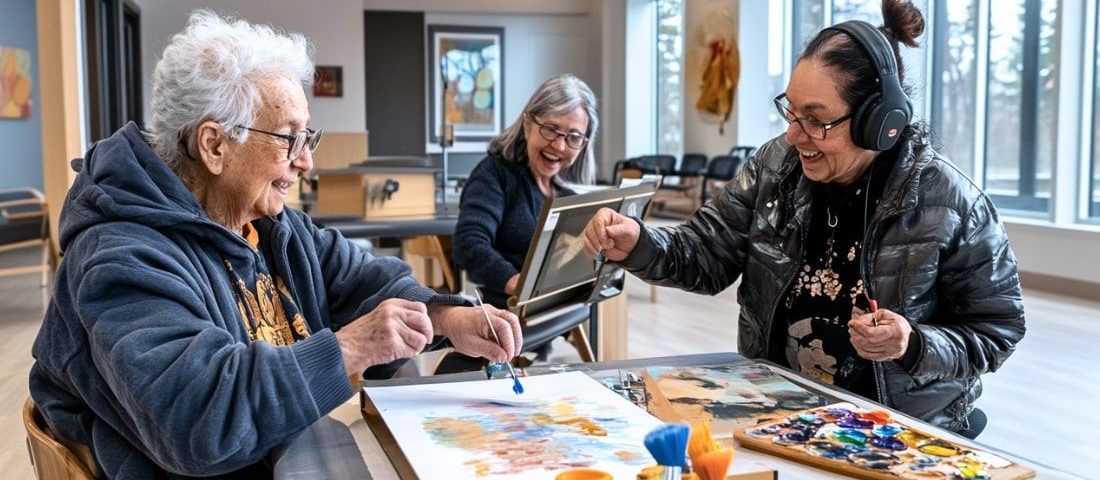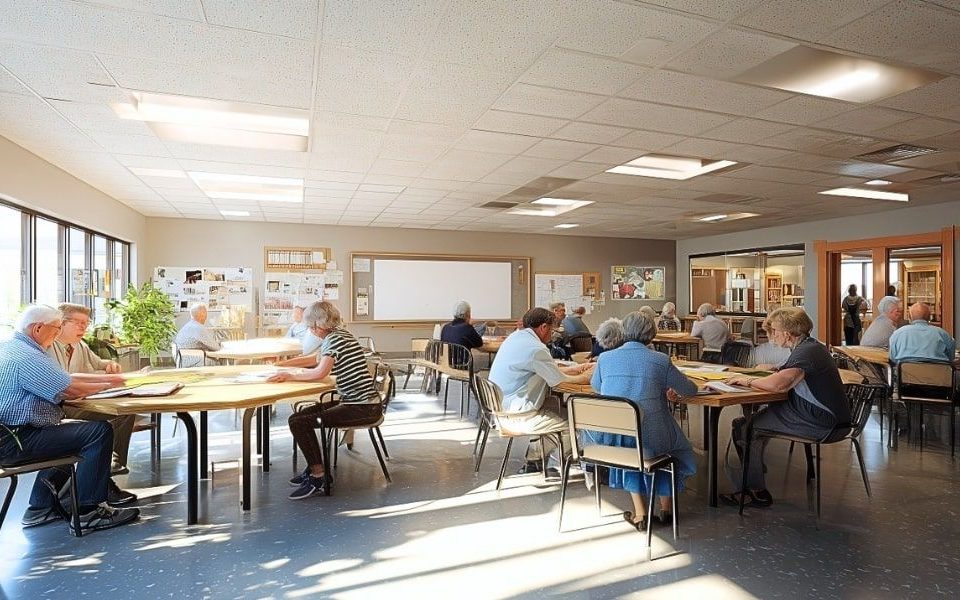
When Alzheimer’s or another type of dementia afflicts a loved one, getting the proper support is critical. Memory care programs improve the quality of life for seniors with cognitive decline. Practical tools in these programs include music, art, and sensory activities. These activities awaken memories, lift moods, and provide meaningful engagement. Memory care programs use music, art, and sensory stimulation to make a meaningful difference.
How Music Enhances Memory and Mood
Music helps us remember things from the past. Familiar songs can stir emotions and bring back memories, even when verbal communication is difficult. Caregivers in memory care programs often use music therapy to connect with residents more deeply.
Benefits of music in memory care include:
- Triggering Memories: Hearing a favorite song from the past can bring back strong memories and feelings of comfort.
- Calming Anxiety and Restlessness: Soft, calming music can help reduce feelings of agitation and confusion.
- Encouraging Social Connection: Group sing-alongs and music sessions help people connect and communicate with each other.
Family members often feel happy seeing a loved one respond to a favorite song. This moment can bring joy even during tough times.
The Therapeutic Power of Art
Art activities are essential in memory care because they encourage creativity and self-expression. They help people share their thoughts and feelings, even if they find it hard to use words.
Some key benefits of art therapy include:
- Improve Thinking Skills: Creative activities like painting and crafting stimulate the brain and help with problem-solving.
- Increase Confidence: Finishing an art project gives people a sense of achievement and pride.
- Express Feelings: Art allows people to express emotions that are hard to talk about.
Art programs in memory care support residents by focusing on the creative process instead of the final product. Creative processes help residents express themselves freely without feeling pressured or judged.
Sensory Stimulation: Engaging the Senses
Using the senses can provide comfort and improve well-being for seniors with dementia. Memory care programs engage sight, sound, touch, smell, and taste to create calm and stimulating experiences.
Examples of sensory activities include:
- Aromatherapy: Scents like lavender and fresh-baked cookies can bring back memories and help reduce stress.
- Tactile Objects: Soft textures like blankets and smooth stones can create calming feelings.
- Nature Experiences: Being outdoors or visiting sensory gardens can improve mood and reduce agitation.
A Holistic Approach to Memory Care
Music, art, and sensory activities are essential for memory care programs. They help create emotional connections and improve your loved one’s quality of life.
If you’re looking at senior living communities for a parent, ask about their memory care services. A sensory-rich environment can help your loved one feel safe and engaged.
Discover how The Mountain Side of Warm Springs fosters purpose and independence for our residents while providing personalized senior care. Explore our customized senior services to see how we support a fulfilling, enjoyable life. Are you interested in learning about living at The Mountain Side? Learn more about our comfortable, thoughtfully designed suites.
We’d love to show you around—schedule a visit to Mountain Side today.



